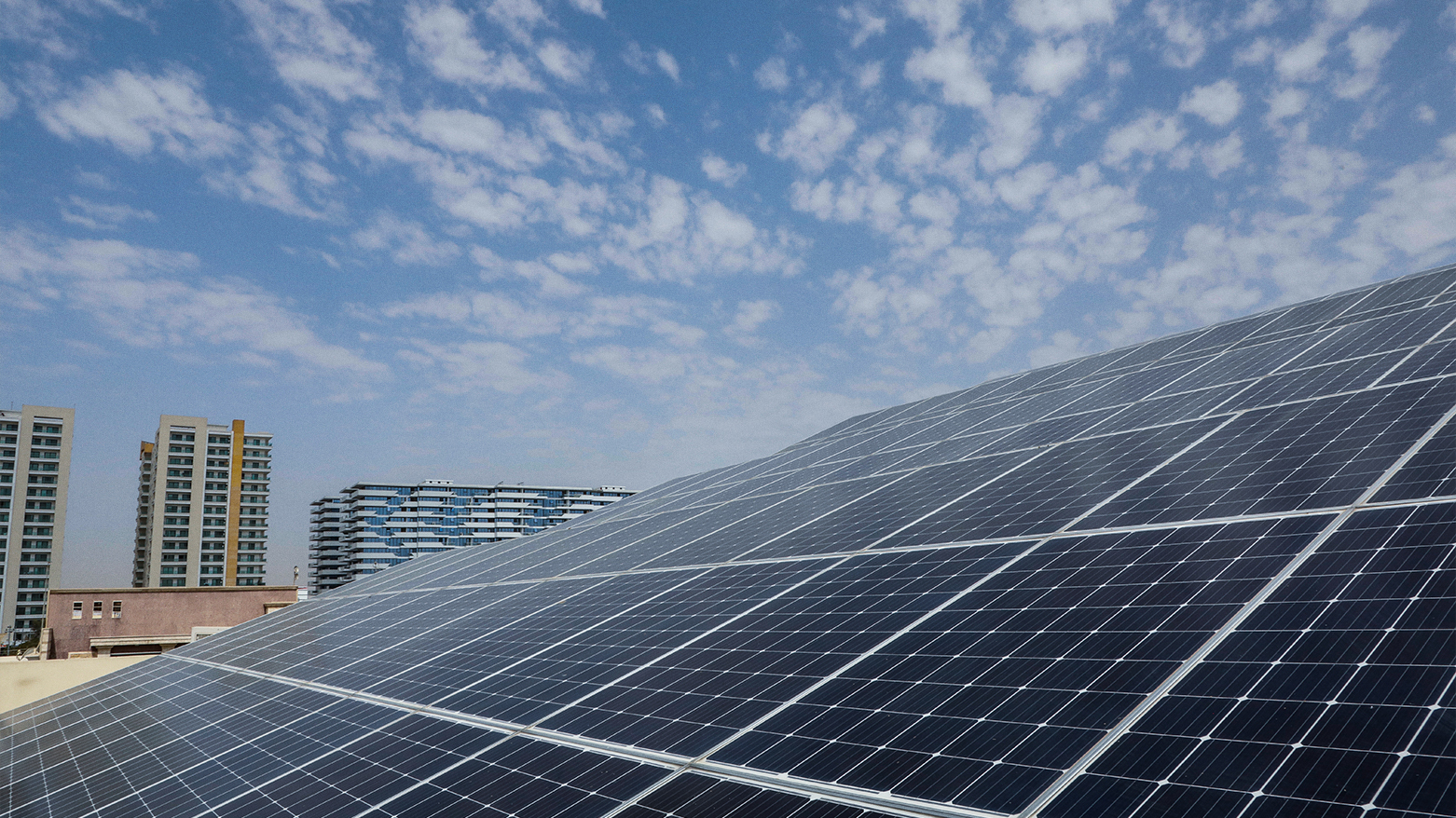Solar Solution: KRG Launches Solar Loan Program for Households
Amanj Harki, head of the Renewable Energy Committee in the Iraqi Parliament, announced that several banks across Iraq and the Kurdistan Region have begun offering targeted loans to support households in adopting solar energy.

By Kamaran Aziz
ERBIL (Kurdistan24) — The Kurdistan Region is taking decisive steps toward a sustainable energy future, as its citizens begin to access targeted loans for installing household solar systems. On Monday, the Kurdistan Regional Government (KRG), in coordination with the German development agency GIZ, hosted a workshop in Erbil titled "Central Bank's Initiative for Establishing Households: A Hope for Clean and Sustainable Energy."
This move in the Kurdistan Region reflects a broader shift, as Iraq as a whole has also taken a major step toward addressing its long-standing electricity crisis and transitioning to sustainable energy. Key parliamentary and financial institutions in Baghdad have announced new support mechanisms for citizens aiming to install solar power systems, underscoring a nationwide commitment to clean energy.
The event, organized by the KRG’s High Technical Committee within the Prime Minister’s Office, gathered policymakers, financial experts, and environmental advocates to discuss the role of banking institutions in facilitating the green energy transition. One of the central figures in the initiative, Amanj Harki, head of the Renewable Energy Committee in the Iraqi Parliament, announced that several banks across Iraq and the Kurdistan Region have begun offering targeted loans to support households in adopting solar energy.
Speaking to Kurdistan24 correspondent Hoshyar Sadiq, Harki explained that citizens can now obtain loans ranging from 7 million to 30 million Iraqi dinars to finance solar panel installations. These loans are processed either directly through banks or via companies officially licensed by the federal government. “The total money is spent directly on implementing the project,” Harki noted. “Once the solar system is installed, the money is released to the company. Neither the citizen nor the company receives any funds in advance.”
The program is accessible not only to public employees but also to security personnel, provided they can furnish the required documentation and guarantors. “It’s just like obtaining any other loan,” Harki said. “As long as the applicants are salaried individuals, they can benefit from this clean energy support mechanism.”
The initiative marks a significant policy shift for Iraq, which has struggled for over a decade to modernize its electricity infrastructure. Chronic power shortages, frequent blackouts, and overdependence on oil-fired generators have long plagued the national grid. Against this backdrop, the push for solar energy is gaining momentum as both an environmental necessity and a socioeconomic lifeline.
Highlighting this urgency, Harki praised the Runak project—an ongoing clean energy model in the Kurdistan Region—as a landmark in Kurdistan Region’s energy transformation. “The Runaki project is a blessing for the future,” he said. “Iraq has spent billions of dollars over the past 10 years and still hasn’t achieved what Runaki has. Politically motivated critics call it expensive, but in truth, it is not costly at all.”
According to Harki, the Runaki initiative does more than just supply uninterrupted 24-hour electricity to citizens. “It stabilizes government revenue, teaches responsible energy consumption, and reduces environmental harm,” he said. “This is the model Iraq needs.”
The German development agency GIZ, which has partnered with Iraqi and KRG officials on several renewable energy efforts, reaffirmed its support for decentralizing Iraq’s power production. The agency emphasized that enabling household-level energy independence through solar panels not only strengthens national resilience but also reduces carbon emissions and reliance on volatile fossil fuel markets.
The loan program, if scaled nationwide, could serve as a foundation for a broader clean energy transition across Iraq. It also comes at a time when global pressure is mounting for oil-dependent nations to invest in sustainable alternatives. In the Kurdistan Region, where sunshine is abundant year-round, solar energy presents a particularly viable solution to chronic supply shortages.
Monday’s workshop in Erbil concluded with a call for greater financial coordination among government institutions, banks, and private sector energy providers to accelerate implementation and improve public awareness. As Iraq confronts both environmental and economic challenges, initiatives like the Ronak project and the solar loan program offer a glimpse into a cleaner, more resilient future.
